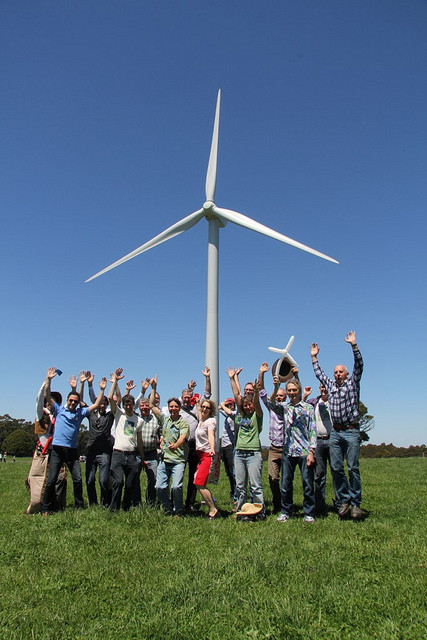Climate Energy
All Stories
-
Department of Commerce slaps large tariffs on Chinese solar panels
The U.S. Commerce Department plans to impose tariffs of up to 250 percent on Chinese-made solar panels imported into the U.S.
-
A national clean energy standard is good policy — and good politics
Americans support a clean energy target for this country. So why is the Senate dragging its heels on the Clean Energy Standard Act?
-
The answer to our fuel woes might be monster sweet potatoes
Corn ethanol is a good idea in theory — what’s more renewable than a fuel source you plant and harvest every year? But corn is such an inefficient energy source that if we wanted to meet our biofuel goals with corn ethanol alone, they’d have to shoulder out every other crop. You know what yields […]
-
Brooklynites: Don’t frack our beer! [VIDEO]
Environmentalists warn New York beer might become a cocktail of toxic chemicals.
-
Don’t believe the hype: Five things you should know about clean energy investments
As Republicans hold yet another hearing questioning government investment in clean energy, here's what you should know about how that investment supports the U.S. economy.
-
Power in numbers: Crowd purchasing brings clean energy within reach
Buying wind power or giving your house an energy efficiency facelift can be an expensive proposition. But it’s less so if you team up with a bunch of like-minded friends.
-
Turbine that looks like a piece of art will fit right in at your yacht club
There are some who believe that those behemoth white wind turbines are beautiful and some (Donald Trump) who believe that they’re a blight on the landscape. Well, here is a wind turbine that will win over both groups. It’s like the Frosted Mini-Wheats of wind energy: The penny pincher in you loves the efficiency, but […]
-
Clean energy as culture war
Conservatives say the American way is to use more and pay less, Walmart-style. No wonder they're scared about the shift to clean energy and sustainability.
-
Lots of solar power may reduce, not increase, electricity prices
A version of this post originally appeared on Energy Self-Reliant States, a resource of the Institute for Local Self-Reliance. Whether German feed-in tariffs or U.S. tax incentives, opponents of solar rail at its perceived high cost. But a story making rounds this week, “why power generators are terrified of solar,” presents a powerful image that […]
-
The surprising reason why Newark Mayor Cory Booker supports wind power
Newark Mayor Cory Booker is handsome, approachable, and once saved a lady from a fire — he’s basically the Ryan Gosling of politics. And one of the reasons people like him, even people like me who know next to nothing about his job performance, is that he’s always willing to make jokes about himself, and […]







